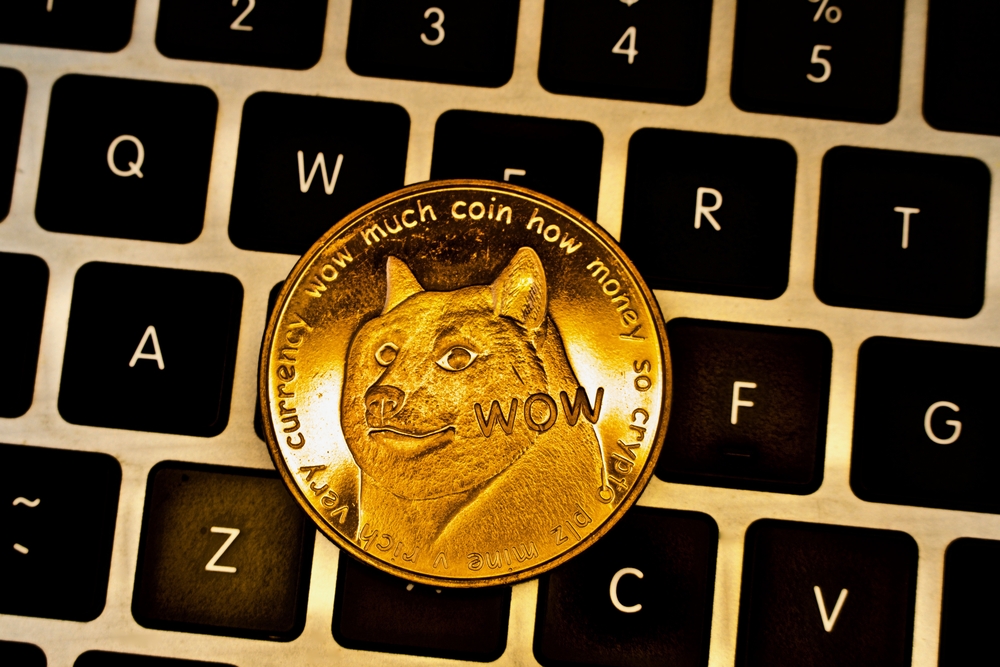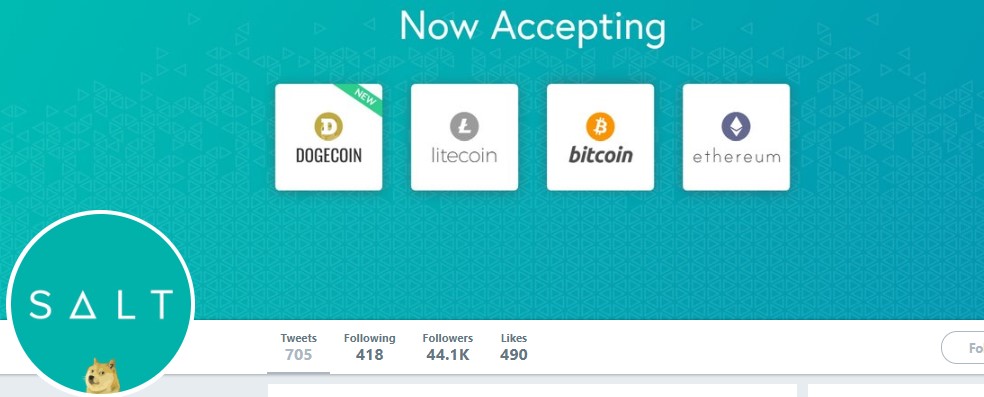Such Borrow, Many Loan: Crypto Lender SALT Now Takes Dogecoin as Collateral

Cryptocurrency investors have another way to access capital without having to liquidate their portfolios. SALT Lending, which has issued more than $50 million in blockchain-backed loans, is capitalizing on the liquidity in dogecoin and has begun offering loans in USD collateralized by longtime crypto darling DOGE. Dogecoin’s profile has been on the rise in recent months as investors have flocked to the altcoin while leaving others out in the cold.
SALT promoted the coin addition subtly on social media by adding Doge, a “Japanese dog breed Shiba Inu” who is the dogecoin mascot, to its Twitter profile. In addition to dogecoin, SALT also supports loans backed by litecoin (LTC), bitcoin (BTC) and ethereum (ETH).
“The majority of loans are collateralized by bitcoin, though some loans are collateralized by ethereum, litecoin or a combination of the three. We are excited to have Doge as our newest collateral type,” Jennifer Nealson, SALT’s chief marketing officer, told CCN.com.

DOGE boasts a market cap of $500 million and trades on many popular cryptocurrency exchanges with one notable exception, Coinbase. While rumors have been circulating that Dogecoin community leaders are pursuing a Coinbase listing, the DOGE team rebuffed those claims.
In the announcement, SALT described dogecoin as an “internet sensation,” one whose value has recovered in 2018 while other altcoins have suffered. DOGE, whose value is up approximately 80 percent since mid-August, has made its way to the top 21 cryptocurrencies, having recently surrendered the no. 20 spot to privacy coin zcash (ZEC).
According to GitHub ,”Dogecoin is a cryptocurrency like bitcoin, although it does not use SHA256 as its proof of work (POW). Taking development cues from Tenebrix and litecoin, dogecoin currently employs a simplified variant of scrypt.”
SALT Lending
SALT’s Nealson explained to CCN.com that, depending on their jurisdiction, borrowers can use the funds either for personal or business reasons. “SALT transfers the loan amount to the borrower’s bank account to be used by the borrower,” she said.
Incidentally, earlier this month, SALT began issuing USD loans backed by litecoin, at which time it revised its interest rate model to include rates as low as 5.99 percent for loans less than $75,000 and 11.99 percent for loans up to $25 million. With the addition of dogecoin, SALT integrated a voting system for new coins that borrowers want to see on the platform.
“We’re listening to members of our community and are continuing to learn what’s most valuable to them. Currently, people can vote on ETH Classic, Monero, XRP, Cardano, Dash, Bitcoin Cash, or they can fill in their own recommendation, as we’re always working to expand our collateral offerings,” said Nealson.
Competitive Landscape
Perhaps the next area of focus will be stablecoins, which are the latest trend in the cryptocurrency community. BlockFi, which is a competitor to SALT Lending that similarly offers loans backed by cryptocurrency, in recent days announced its support for Gemini Dollar (GUSD) as collateral for USD loans. GUSD is the stablecoin that was issued by Cameron and Tyler Winklevoss’ crypto exchange, Gemini. In addition to GUSD, BlockFi also added support for litecoin-backed loans, though it’s not a stablecoin.
Meanwhile, SALT has experienced rising demand for its crypto-backed loans from the “UK, New Zealand, Hong Kong and Vietnam,” and the firm recently expanded its reach in the U.S. to 35 U.S. states.
Featured Image from Shutterstock